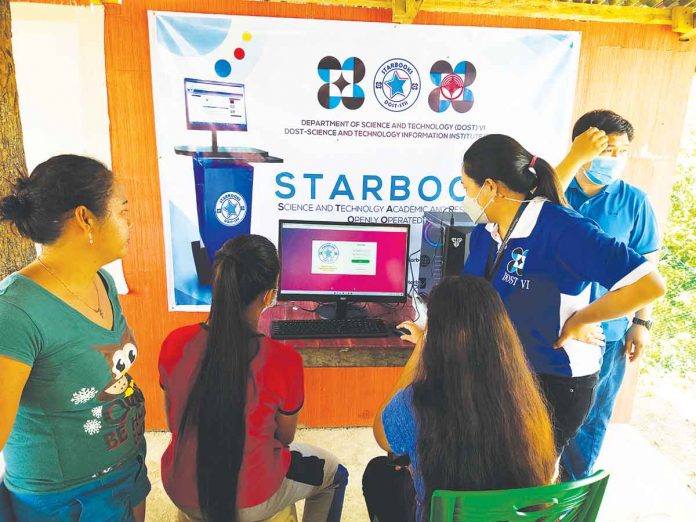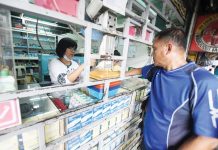
AS PART of Community Empowerment through Science and Technology for Conflict-Affected Areas (CEST-CAA) program in Western Visayas, the Department of Science and Technology Region VI (DOST VI) in partnership with Aklan State University (ASU)-Ibajay Campus provided health and nutrition trainings as well as provided a Science and Technology Academic and Research-Based Openly Operated KioskS (STARBOOKS) unit to Brgy. Cabugao, Ibajay, Aklan.
Health and nutrition trainings include the orientation on DOST-Food and Nutrition Research Institute (FNRI) technologies such as the Pinggang Pinoy and E-Nutibun. A seminar on Meal Planning was also held that fed 100 children using the E-Nutribun technology. Participants of the activities comprised of students and parents/guardians of child beneficiaries of the feeding program took part in discussions about basic concepts of food, food guides, Pinggang Pinoy, E-Nutribun, and meal planning and were subsequently tasked to formulate a three-day meal plan.
In addition, a training on Food Safety was conducted as a way to develop capabilities of Emergency Food Reserve (EFR) production, specifically the needed skills and facilities. Participants were lectured and trained on how to produce and utilize an EFR and its facilities.
As part of the main objectives of the project, the EFR will be managed by an identified organization consisting of Payapa at Masaganang Pamayanan (PAMANA) program beneficiaries and the Kapatiran para sa Progresong Panlipunan (KPP) of Ibajay. This falls under the Closure Agreement Towards the Disposition of Arms and Forces between the Government of the Republic of the Philippines (GRP) and the Partidong Manggagawa Pilipinas/Revolutionary Proletarian Army/Alex Boncayao Brigade Tabara Paduano Group (RPM-P/RPA/ABB TPG). A Memorandum of Agreement (MOA) was also in order to be signed by Aklan State University (ASU) – Ibajay Campus, the DOST-Industrial Technology Development Institute (ITDI), and KPP to transfer technology for the EFR’s production. The facility will roll out products including compact and baked polvoron, sagip powder, and vegetable-rich chocolate bars.
On the other hand, STARBOOKS unit was set up in the barangay under the Human Resource Development component of the CEST-CAA project. With STARBOOKS, students residing in areas with limited internet connection such as the aforementioned neighborhood can access educational scientific information offline.
After an orientation and demonstration of the STARBOOKS system, participating students and parents of the other residing children – comprising of 68 in total – had the opportunity for a hands-on activity. (KJRGagajena/DOSTVI-KMU)



